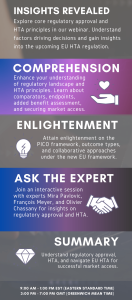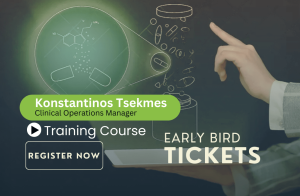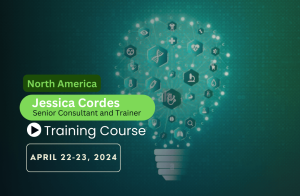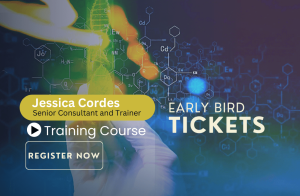
Webinar Description
The first step to market access is an assessment of relative efficacy. To be granted regulatory approval, a new drug should have sufficient quality, efficacy, and safety, with benefits outweighing the risks in a predefined patient population with a given disease. The second step is to assess its relative effectiveness, cost effectiveness and usefulness to the healthcare system. This assessment is generally based on the evidence that a new drug does more good than harm (has added benefit) in a target population when compared to one or more therapeutic alternatives (standard of care) in achieving desired results when provided under the usual circumstances of health care practice.
The added benefit is assessed with appropriate endpoints and in comparison to an adequate comparator. The choice of endpoints and of an adequate comparator have a major impact on HTA decisions. Although many sponsors have their focus on regulatory guidelines while planning study design, incorporating HTA requests is essential for market access purposes. Indeed, a product may be refused for reimbursement if its relative effectiveness is considered inferior to existing treatments or if the evidence provided is considered inadequate or insufficient.
As joint European assessment reports will be introduced soon, we shall cover the main characteristics of the new EU HTA regulation, its implementation, and obligations it brings for all stakeholders: pharmaceutical companies (sponsors), HTA assessors, clinicians, and patients.
Why Attend this Training?
Beginning with January 2025, joint European HTA reports will be mandatory for oncology drugs and advanced therapy medicinal products. New structures have been put in place at the European Commission for this task; process, timelines, and content of the dossiers to submit is complex and very demanding.
The aim of this webinar is to revisit the benefit/risk assessment in the regulatory setting, the concept of HTA, and that of added benefit assessment for reimbursement purposes. We shall cover the main pillars of both regulatory and HTA assessments: population, intervention, comparators, and outcomes (endpoints) together with adequate methodology.
By attending this training course, you will:
- Deep Dive into Regulatory Approval Processes: Gain insights into the basis for regulatory approval, focusing on comprehensive benefit/risk assessments and the criteria for relative efficacy. Understand how these factors drive the approval process in the pharmaceutical landscape.
- Holistic Understanding of Health Technology Assessment (HTA): Delve into the definition, aim, and basic principles of HTA. Learn about the relative effectiveness assessment for reimbursement purposes across different European Union countries, enhancing your ability to navigate diverse regulatory environments.
- Mastering the PICO Framework: Get equipped with the skills to accurately identify and analyze the four elements of PICO: Population, Intervention, Comparators, and Outcomes. This knowledge is crucial in designing and evaluating clinical trials and healthcare research.
- Differentiating Outcome Types for Regulatory and HTA Assessments: Develop an understanding of various types of outcomes (endpoints) used in both regulatory and HTA assessments. Learn to select appropriate endpoints based on the specific requirements of each assessment type.
- Strategizing Dossier Development: Explore strategies for creating a comprehensive dossier that meets the criteria for both regulatory approval and HTA assessment. Learn about the commonalities and differences in requirements, streamlining the approval process.
- Elevating Methodology and Evidence Quality: Enhance your ability to evaluate and implement robust methodologies in clinical trials and research. Understand the criteria for high-quality evidence, vital for successful regulatory and HTA submissions.
- Navigating the EU HTA Regulation: Gain expertise in the new EU HTA regulation, understanding its implications, and requirements. Be prepared for the evolving regulatory landscape in the European Union, especially for oncology drugs and advanced therapy medicinal products.
- Collaborative Approaches in Joint Scientific Consultations and Assessments: Learn about the processes and benefits of joint scientific consultations and clinical assessments under the new EU framework, fostering collaborative approaches among stakeholders.
- Understanding Stakeholder Roles in HTA and Regulatory Processes: Develop a comprehensive view of the roles and responsibilities of each stakeholder in the HTA and regulatory processes, including pharmaceutical companies, assessors, clinicians, and patients.
- Anticipating Challenges and Formulating Solutions: Equip yourself with the knowledge to anticipate potential difficulties in the regulatory and HTA landscapes and learn effective strategies for overcoming these challenges, ensuring smoother market access for pharmaceutical products.

Who should attend?
This webinar is relevant for:

This program’s comprehensive approach to understanding the regulatory and HTA landscapes in the pharmaceutical industry makes it a valuable resource for a wide array of professionals within the sector, especially those involved in ensuring the successful development, approval, and market access of pharmaceutical products
- Regulatory Affairs Professionals
- Market Access Managers and Specialists
- Clinical Research and Development Personnel
- Health Economics and Outcomes Research (HEOR) Specialists
- Pharmacovigilance and Drug Safety Officers
- Medical Affairs Professionals
- Product Managers
- Business Development and Strategy Executives
- Quality Assurance
- Government Affairs and Policy Professionals
About the trainers
Mira Pavlovic – expert for regulatory and health technology science and market access
 In addition to working in clinical dermatology, Mira served as a Head of Scientific Advice at the French Medicines Agency (ANSM) and was Scientific Advice Working Party Vice-Chair at the European Medicines Agency.
In addition to working in clinical dermatology, Mira served as a Head of Scientific Advice at the French Medicines Agency (ANSM) and was Scientific Advice Working Party Vice-Chair at the European Medicines Agency.
In 2010 Mira joined the Hauté Autorité de Santé (HAS), France, as Deputy Director for Health Technology Assessment and international affairs, in charge of European activities related to relative effectiveness assessment for reimbursement purposes.
She chaired multi-HTA and combined EMA-HTA Scientific Advice for the European Commission and coordinated elaboration of methodology guidelines for EUnetHTA.
In 2015, Mira founded Medicines Development and Training (MDT) services (Paris, France) to support clients’ drug development strategies and market access in Europe. She is the NDA Advisory Board member and senior expert for Clever Access as well as Faculty Member of the European Access Academy, actively involved in EU HTA regulation implementation activities. She also teaches regulatory and HTA science at Lisbon University, Portugal.
Francois Meyer – FMA
 François has a MD degree in Endocrinology and metabolic diseases from the University of Montpellier (France) and started its career in an Internal medicine department of Montpellier teaching hospitals. After having worked for five years for a major pharma company, he joined the French Medicines Agency (currently ANSM) as deputy director of the Medicines and Heath Products Evaluation Department. He was nominated at the EMA’s Committee for Orphan Medicinal Products (COMP) during its initial mandate.
François has a MD degree in Endocrinology and metabolic diseases from the University of Montpellier (France) and started its career in an Internal medicine department of Montpellier teaching hospitals. After having worked for five years for a major pharma company, he joined the French Medicines Agency (currently ANSM) as deputy director of the Medicines and Heath Products Evaluation Department. He was nominated at the EMA’s Committee for Orphan Medicinal Products (COMP) during its initial mandate.
In 2005, when the French National Authority for Health (HAS) was created, François was charged with setting up its Health Technology Assessment (HTA) Division, overseeing the grouping and consolidation of HTA in its five major areas (pharmaceuticals, medical devices, interventional and diagnostic procedures, and public health actions and programs).
François later devoted himself to the HAS’s international cooperation activities, at both European and global levels. He was a member the board of HTAi, the main international society for HTA and had a key role in the European HTA network EUnetHTA. He represented the HAS and EUnetHTA in numerous HTA-EMA cooperation projects.
Olivier Chassany, MD, PhD, HDR – Full Professor of Medicine
 Professor of Therapeutics (Health Economics Clinical Trial Unit, AP-HP Paris hospitals, France), specialist in gastroenterology, with a long experience in developing Patient-Reported Outcomes (PRO) questionnaires. Involved for more than 20 years in dossiers expertise for EMA and French Drug Agency and for more than 30 years in Ethics Committees. Co-author of the EMA Reflection Paper on Health-Related Quality of Life. Deputy director of an academic research team on epidemiology and PRO (Université Paris Cité, Inserm). Past chair of the ISPOR SIG Clinical Outcomes Assessment (COA).
Professor of Therapeutics (Health Economics Clinical Trial Unit, AP-HP Paris hospitals, France), specialist in gastroenterology, with a long experience in developing Patient-Reported Outcomes (PRO) questionnaires. Involved for more than 20 years in dossiers expertise for EMA and French Drug Agency and for more than 30 years in Ethics Committees. Co-author of the EMA Reflection Paper on Health-Related Quality of Life. Deputy director of an academic research team on epidemiology and PRO (Université Paris Cité, Inserm). Past chair of the ISPOR SIG Clinical Outcomes Assessment (COA).
Early bird - REGULATORY EFFICACY AND EFFECTIVENESS GAP EU HTA
EUR799
Livestreaming Zoom _____ ✔️ Interactive Lectures _____ ✔️Recording of course available for one month _________ ✔️
SECURE YOUR SEAT
REGISTER



